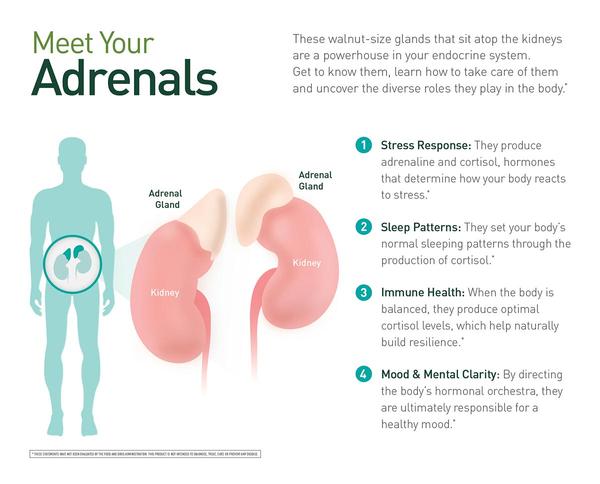How Does Our Body Handle Stress?
The Importance of The Adrenal Gland
The adrenal gland is largely responsible for dealing with our reactions to stress. These glands sit right above our kidneys, and that is where the term adrenal comes from. This gland is responsible for how our body handles stress because it secretes several different hormones that allow our bodies to function and respond when in fight or flight situations. One of the hormones that the adrenal glands secrete is adrenaline. This hormone allows us to access reserves for our fight or flight response, working with the nervous system to give us that immediate response to stress.
Further, the outside of the adrenal gland is called the cortex. The cortex makes hormones for lower level stresses in our day to day life, such as large assignments, work projects, and work or family stresses. The cortex also makes sex hormones and kidney hormones. For example, the kidney deals with sodium and potassium which affect blood pressure.

How is Cortisol Involved?
For these daily stressors, cortisol is an important hormone. Cortisol’s job is to help us balance stresses throughout the day. After these stressful encounters, it is important for our body to have time to rest and recover. Without this process, we can start to see it negatively effect our body. A few signs of adrenal fatigue are:
- Brain fog
- Weight gain
- Irritability
- Anxiety/Depression
- Lowered immune system responses
Lowering stress levels and adjusting lifestyle factors such as looking at what we eat, how we sleep, and exercise can assist with adrenal fatigue.
If you have any questions, please feel free to contact our office.
Here’s To A Better Life,
Dr. Steve Puckette









